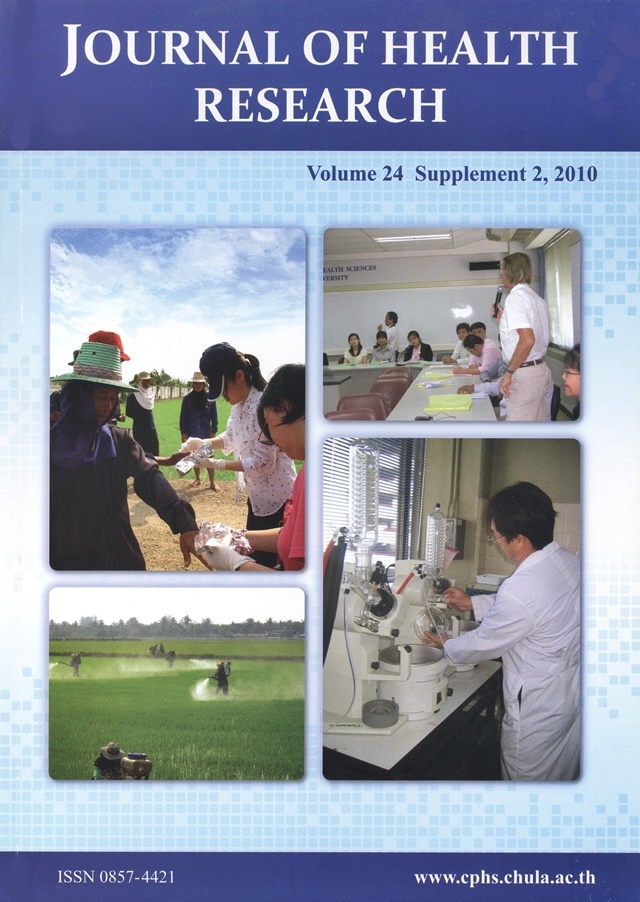Knowledge, Attitude, and Practice (KAP) of Using Personal Protective Equipment (PPE) for Chih-Growing Farmers in Huarua Sub-District, Mueang District, Ubonrachathani Province, Thdand
Keywords:
Knowledge, Attitude and Practice (KAP), Pesticide, Personal Protective Equipment (PPE), ThailandAbstract
Pesticide use in Thailand has increased significant, raising concerns about potentially adverse effects on human health and environment, in particular, as a number of pesticide products have been heavily used on chilli farms. The objectives of this study were: (1) to assess the knowledge, attitudes, and practices on using personal protective equipment (PPE) of chilli-growing farmers to protect themselves from pesticides, (2) to evaluate the knowledge, attitudes, and practices associated with pesticide use and exposure in the chilli-growing farmers, and (3) to provide recommendations and guidelines to reduce the exposure to pesticides among farmers in Huarua Sub-District, Mueang District, Ubonrachathani Province, Thailand. A standardized questionnaire was completed through face to face interviews with 330 chill-growing farmers. The results showed that 53% of the participants were male and 39.6% and ages ranging between 31-40 years. 71.2 % had received primary school education and most of them applied pesticides by themselves. Almost 89.4% of respondents acknowledged that they ought to wear mask, boots, and cloth while spraying. Furthermore, 83.3% knew that pesticides can pass through their body in 3 ways; ingestion, dermal contact, and inhalation. In addition, 45.5% of respondents knew that spraying should be done in the windward direction and that they should use PPE. Many of the respondents checked their equipment before using them and wore clothing while spraymg. Nevertheless, 77.2 % of chilli-growing farmers had low level of knowledge, 54.5 % of the farmers were not concerned about pesticide use or exposure, and 85.0 % of farmers demonstrated a fair level of actual usage. The associations between knowledge and attitude, knowledge and practice, and attitude and practice demonstrated statistical significance with low positive correlation (0.2 16, 0.285, and 0.305 respectively,). The results suggested that government authorities and communities should be provided with the appropriate recommendations, strategies and guidelines to prevent adverse health effects regarding to pesticide exposure of farmers in this area.Downloads
Published
2018-11-28
How to Cite
Norkaew, S., Siriwong, W., Siripattanakul, S., & Robson, M. (2018). Knowledge, Attitude, and Practice (KAP) of Using Personal Protective Equipment (PPE) for Chih-Growing Farmers in Huarua Sub-District, Mueang District, Ubonrachathani Province, Thdand. Journal of Health Research, 24(Suppl. 2), 93–100. retrieved from https://he01.tci-thaijo.org/index.php/jhealthres/article/view/157584
Issue
Section
ORIGINAL RESEARCH ARTICLE







